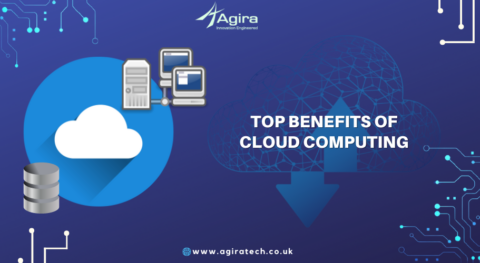What are the things you need to consider before moving to the cloud platform?
Migrating to the cloud offers several benefits to your enterprise, including efficiency, economy and
scalability, which enable you to perform business functions quickly and efficiently. As cloud
computing services are available to everyone regardless of size and market, enterprises are
increasingly attracted to adopt cloud computing services to optimize their business processes and
become more competitive. However, migrating to the cloud is a big step that involves
transformation at multiple levels. The bigger the business, the more complex the migration can be
and CIOs should carefully evaluate before starting the cloud journey. Here are some things to
consider before migrating to the cloud.
Business Objectives
The first thing to consider before making a critical decision is the business objectives that will be
achieved. The same is true for cloud migration. CIOs should consider how this can benefit the
business. A careful risk-benefit analysis helps you understand the business objectives of a cloud
migration and how they align with your overall strategic direction. A related concern is whether
cloud-enabled technologies are compatible with legacy applications and systems already in use in
the organisation, and what kind of business disruption this transition would involve.
Security
This is one of the CIO’s top priorities. While public cloud providers have strict security frameworks in
place and use best practices to protect data in their cloud, it can be daunting to store your valuable
data on another company’s servers. Experts argue that your data is safer in the cloud because cloud
providers can protect information more effectively than most companies. However, it would be wise
to ensure that your cloud service provider has adequate security measures in place.
Compliance
In relation to security, compliance is another important consideration for most companies. The
General Data Protection Act has created strong penalties for companies that fail to protect the
privacy of personal data, and this even includes data stored on third-party servers. If you choose to
migrate to the cloud, there are ways to mitigate security and compliance risks and you should
discuss the same with your provider or partner before making the migration.
Disaster recovery
To ensure business continuity, you should consider your disaster recovery strategy before you start
migrating to the cloud. What is an effective backup strategy if your cloud provider suffers downtime
or faces a disaster? What is your recovery plan to get you out of the crisis? It is important that you
have some knowledge of what constitutes an outage and when fiscal penalties should kick in in that
case. Your service level agreements (SLAs) should cover all of these details.
Cost and ROI
One of the critical considerations about migrating to cloud versus on-premises is the cost of the
running infrastructure – hardware, software, human resources, fault tolerance and disaster recovery.
One of the advantages of migrating to cloud services is that the cloud technology is paid for as an
operating expense (OPEX) and requires little or no flexibility and scalability. In terms of operational
costs, your cloud subscription should cover most of your costs.
Verification and support
In most cases, internal IT departments do not have the necessary skills to effectively monitor and
maintain a cloud environment. Enterprises also need the support of an independent party to assess
and verify the cloud environment suggested by the provider. Cloud Managed Service Providers
(MSPs) have extensive cloud expertise to validate, migrate and support your environment. It is also
advisable to use a standalone cloud management platform (CMP) to manage and optimize your
cloud assets. This will enable you to gain insights into costs incurred, identify usage patterns and
adjust your infrastructure for optimal cloud performance.
Cloud migration is not a one-time decision. The decision should not be made in isolation because it
has long-term and enterprise-wide implications. You should consult with a cloud partner who can
assess your current infrastructure and provide a detailed migration roadmap, as well as the risks
involved. As cloud computing and SaaS mature, they are emerging as key tools in the arsenal of IT
managers, enabling cost savings, better capacity management and faster deployment. With care and
attention, you can mitigate the risks that remain and take full advantage of moving IT services to
these new models.









